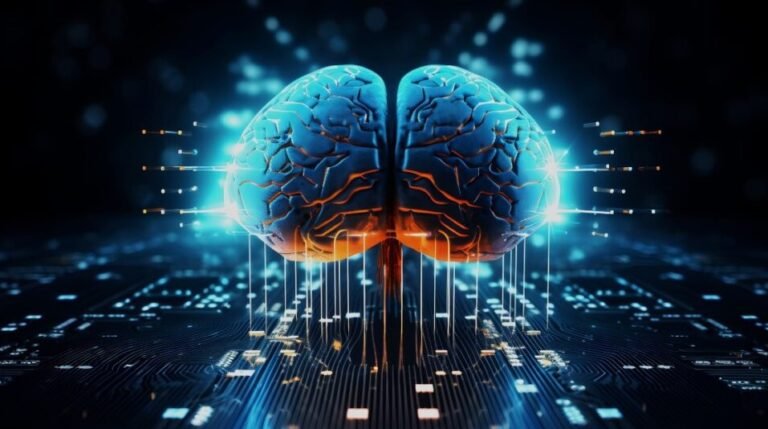The impact of Artificial Intelligence on various facets of human life has never been more pronounced. As technology continues to evolve at an unprecedented pace, industries ranging from healthcare to transportation are being revolutionized by AI-driven innovations. This transformation not only streamlines processes and enhances efficiency but also poses intriguing ethical questions and challenges that we must address. With robots and algorithms taking on an increasingly pivotal role in our everyday lives, understanding the implications of Artificial Intelligence is critical for navigating the future effectively.
The Rise of AI Technologies
The evolution of Artificial Intelligence has been fueled by advances in machine learning, natural language processing, and robotics. Today, AI systems are capable of analyzing vast amounts of data, identifying patterns, and learning from them without human intervention. This capability is transforming how businesses operate, leading to greater productivity and enhanced decision-making. From predictive analytics in marketing to personalized patient care in healthcare, the applications of AI are virtually limitless and continue to expand as new technologies emerge.
AI in Everyday Life
As Artificial Intelligence becomes more integrated into our daily routines, its presence is felt in both subtle and significant ways. Smart assistants, such as Siri and Alexa, are common in households, managing schedules, controlling smart devices, and providing instant information at our fingertips. Meanwhile, industries are harnessing AI-driven analytics to tailor products and services to consumer needs, creating a more personalized shopping experience.
Challenges and Considerations
While the advancements in Artificial Intelligence are promising, they also bring concerns related to job displacement, privacy, and ethical governance. Automation has the potential to replace jobs traditionally held by humans, raising questions about future employment landscapes and the ability of the workforce to adapt to new roles created by AI advancements. Furthermore, as AI systems collect and utilize personal data, safeguarding privacy becomes paramount, necessitating stringent regulations and ethical frameworks to protect individuals.
The Future of AI
Looking ahead, the possibilities for Artificial Intelligence seem boundless. As we delve deeper into the realms of quantum computing and advanced algorithms, the capabilities of AI are expected to transcend our current understanding. Innovations like autonomous vehicles, smart cities, and sophisticated AI-driven healthcare solutions are on the horizon. These developments could not only improve quality of life but also spur economic growth on an unprecedented scale.
AI in Education
Artificial Intelligence is transforming the field of education by personalizing the learning experience for students. With adaptive learning platforms, AI can assess individual student performance in real time, tailoring content to meet their specific learning needs and preferences. This personalized approach helps educators identify areas where students may struggle and provides targeted resources to address gaps in knowledge. Moreover, AI-powered tools can streamline administrative tasks, allowing teachers to focus more on instruction and student engagement, ultimately fostering a more effective learning environment.
The Role of AI in Healthcare
In healthcare, Artificial Intelligence is playing a transformative role in diagnostics, treatment planning, and patient care. AI algorithms can analyze medical images, detect anomalies, and assist radiologists in making accurate diagnoses. Additionally, AI-driven predictive analytics enable healthcare providers to anticipate patient needs and create customized treatment plans. As the healthcare landscape evolves, AI has the potential to enhance patient outcomes, reduce costs, and even identify emerging health trends by analyzing population health data.
Ethical Implications of AI
As Artificial Intelligence continues to advance, the ethical implications of its use are becoming increasingly important. Questions surrounding accountability, transparency, and fairness in AI systems need to be addressed. For instance, biases in algorithms can lead to unfair treatment outcomes, particularly in sensitive areas like hiring or law enforcement. Establishing guidelines and frameworks for ethical AI development is crucial to ensure that these technologies are used responsibly and equitably. Engaging in ongoing dialogue among technologists, policymakers, and the public will be vital to navigating the ethical landscape of AI.
Conclusion
In conclusion, Artificial Intelligence is rapidly transforming our world, with countless possibilities for the future. From everyday applications to significant advancements in healthcare and beyond, AI is shaping tomorrow in ways we could not have imagined. While challenges and ethical considerations must be addressed, the potential benefits of AI are vast. By understanding this technology and actively engaging in its development and governance, we can harness its power to create a better future for all. So let’s embrace AI advancements and continue exploring the endless possibilities they hold.

